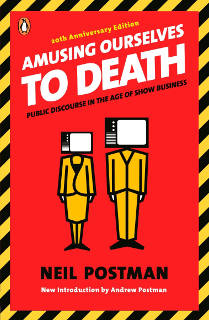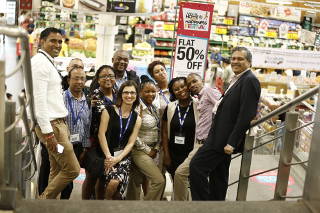[Image by Harish Sharma from Pixabay]
I was tired at the end of it all. A bout of frenzied cleaning ahead of Diwali, and five cartons went out of the door! The space is so rich now and the tiredness seems worth it all. The cleaning also surfaced some photographs from yesteryears. Photographs of ‘not-so-long-ago’ yet seemed so far away. In the background of a much younger me, there were big box computer monitors, fax machines, stacks of paper, large desk phones, a big overhead projector and much else that reminded of a different era. We have come a long way. Work has evolved during this time and how!
Much as work has evolved, so have the options and opportunities for organisations and individuals to learn and stay ahead of the curve. Yet, that is one area where stumbles are common and anxieties about the future punctuate ordinary conversations. In a recent survey by Deloitte, there were a few data points that caught our attention.
- 90% of survey respondents said that their organisations were redesigning jobs and 32% were doing it substantially.
- 54% of all employees will require significant reskilling and upskilling.
- 86% of respondents felt a need for improving learning and development with only 10% saying they were ready!
Just these three data points indicate the road we are on and the ask that lies ahead.
Our conversations with business leaders often give us clues. Both from what is getting stated and what often lies tucked away for us to decipher. A few key pointers about designing learning and getting organisations ‘future ready’ consistently emerge. Here are the top four.
1. Good learning design has a major bearing on the design and rhythm of daily work. Work is the learning and learning that is embedded in work sticks. Now, that requires imagination and thinking of the learning function very differently. That reminds me, learning is not ‘training programme’.
2. Every organisation functions within the larger context of society and societal change. Learning thrives beyond the firewall. There is much good work, experiences and knowledge that exist in the world, ready to be tapped into and adapted to the firm’s context. Readying the firm for the future involves keeping pace with the changes that are occurring outside the firm as well. “We are the best firm this side of town” does not hold water when the map of the town is getting redrawn. The role of the learning function to be curators and network builders is more present now, than ever before!
3. Learning is a personal responsibility. The employees who are getting ready for the future are the ones that prioritise and own their learning. They reach out, build their own personal sources and leverage what’s available. And of course, there is plenty available, both within and outside the organisation. Organisations that remove friction in learning see work getting done better and talent getting ready for the future
4. While thinking of building organisations, it is imperative to think ‘systems’. It is easy to think piecemeal. Check box. Transaction. To think systems is hard work. It requires plenty of conversations, curiosity and perseverance to see beyond what seems obvious. Obviously, it’s not common.
At Founding Fuel we have done more than merely wringing our hands and wondering what’s to be done or why some organisations get it and others don’t. We are happy and grateful for the fact that we have the opportunity to work and converse with some who do. And those invariably lead us to other projects.
Take for example the Masterclass on Transforming Systems with Arun Maira. The process of stringing together various conversations and the output around that have offered so much to us and to all others who have been aboard. This week, Ravi Venkatesan explores how to create solutions to societal problems, at scale. From ‘full stack’ organisations, to societal platforms, to Sustainable Development Goals, it is a compelling read that seeks to create a model of learning and working for the future. And while you are there, check out the full package, if you haven’t already done so. It is both practical and deep.
Apurva Purohit’s book, Lady, You’re the Boss has seen much conversation and interest. We publish an extract. A line from the book that caught my eye is this: “Imposter syndrome tells you you’re a fraud for choosing to inhabit the role you’ve rightfully earned.”
Sounds like some more Diwali cleaning is required. It’s good for what’s on the mind. And of course, it’s good for learning.
Kavi Arasu
Featured Stories
Purpose-Driven Networks: Creating solutions to social problems, at scale

Complex societal issues require diverse set of capabilities—which reside in a variety of business and civil society organisations. When they come together as a self-coordinating network, they can create collective impact. (By Ravi Venkatesan. Read Time: 5 mins)
Is imposter syndrome holding you back?

The syndrome shows its worst form when we are given a platform to operate on and we choose to occupy only a small part of it. But there’s a simple way to beat back the self-doubt that holds even accomplished people back. An excerpt from the book, ‘Lady, You’re the Boss’, by Apurva Purohit. (Read Time: 5 mins)
What We Are Reading
Amusing Ourselves to Death: Public Discourse in the Age of Show Business by Neil Postman

In this classic, first published in 1985, Neil Postman wrote: “When a population becomes distracted by trivia, when cultural life is redefined as a perpetual round of entertainments, when serious public conversation becomes a form of baby-talk, when, in short, a people become an audience and their public business a vaudeville act, then a nation finds itself at risk; culture-death is a clear possibility.” Those words are as true today of media as they were true of television back then.
From Our Archives
Learning to learn

What colleges and business schools teach is becoming outdated rapidly in a dynamically changing world. They need to include systems thinking and deep listening as foundational disciplines to prepare students to be life-long learners. (By Arun Maira)
How entrepreneurs learn

Large established firms have a tough task in embedding entrepreneurial thinking inside the firm. Because it means rewiring the way leaders think about the future. (By Indrajit Gupta)
A new learning cheatsheet

By integrating ideas from a host of new approaches like Design Thinking, continuous learning, coaching and facilitation, one can create distinctive and relevant learning opportunities. (By Indrajit Gupta)

